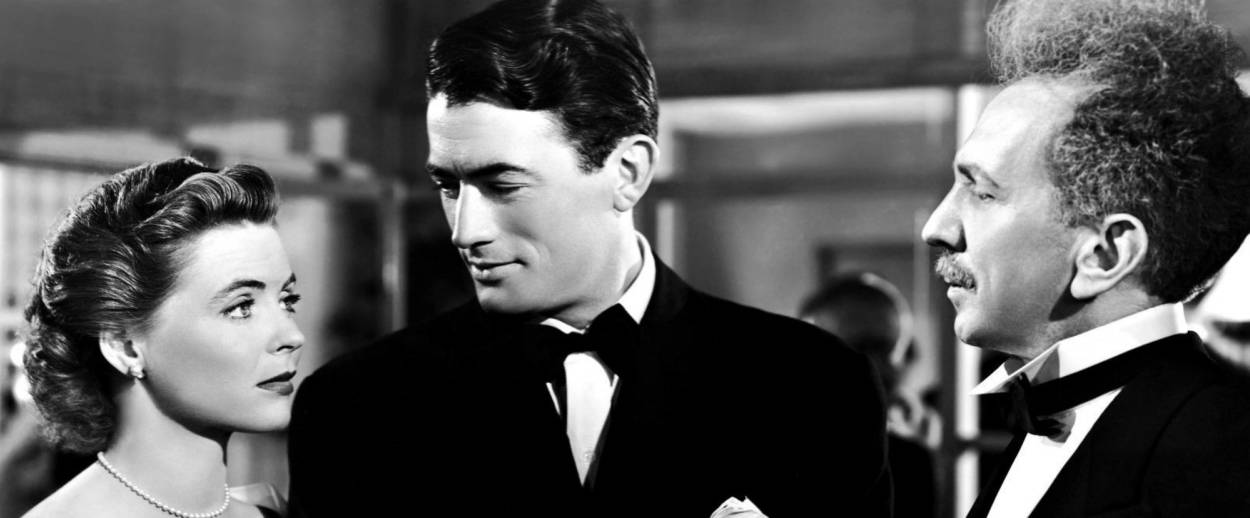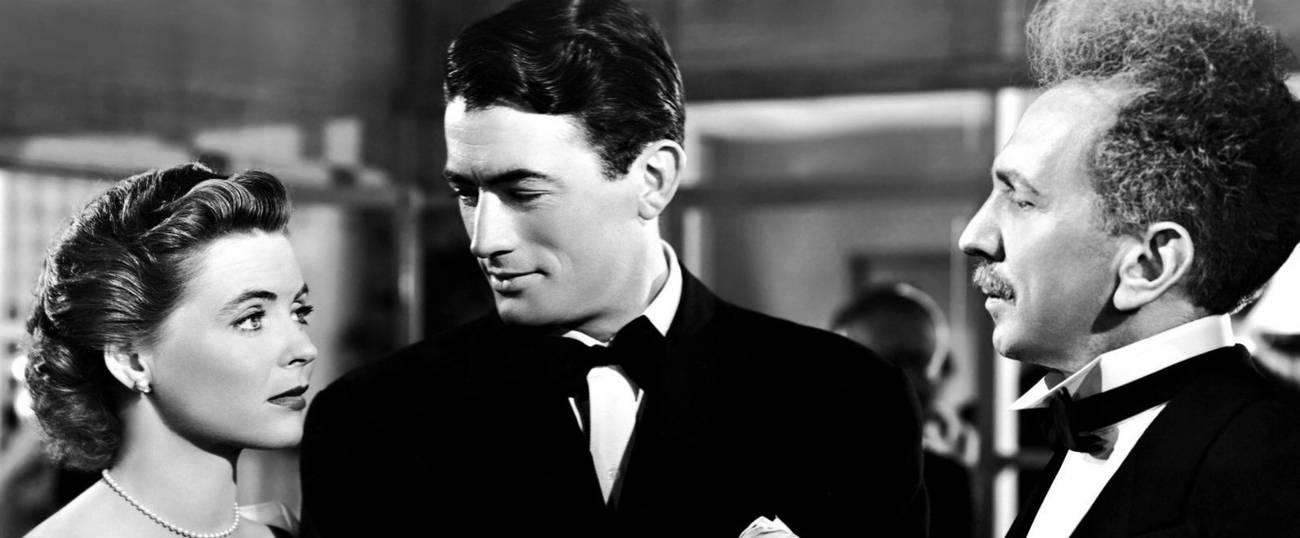Of Jews and Gentlemen
Hollywood confronts anti-semitism in Elia Kazan’s 1947 film Gentleman’s Agreement.




One of the most nuanced conversations about postwar American anti-Semitism came in the form of a film. In 1947 Elia Kazan released Gentleman’s Agreement, starring Gregory Peck as a gentile journalist who is assigned to write an article on anti-semitism. After realizing that he will never fully understand this prejudice without experiencing it, Peck adopts the name Greenberg and goes undercover as a Jew in New England’s high society in order to expose the truth of anti-Jewish sentiment lurking not-so-far beneath the surface.
Like School Ties, this film addresses the kind of quiet anti-Semitism of the American upper class, which should have been anathema to a people who had just returned from war with the Nazis. Soon, he discovers that this covert form of anti-Semitism exists everywhere, even in the hiring policies of the very newspaper that gave him this assignment in the first place—his secretary, he learns, is Jewish, and changed her name in order to get a job. Peck’s relationship begins to fall apart as his own girlfriend—a woman from a wealthy Connecticut family who appears to have shed all trace of prejudice in her own life—becomes more and more uncomfortable by his social experiment, even though she knows he isn’t actually Jewish.
Peck quickly goes from witness to anti-Semitism to a victim of it. Businesses refuse to serve him and his son is harassed at school. The story reaches a climax when Peck shows up at his girlfriend’s glitzy family Christmas party and people refuse to be in the same room as him.
Perhaps this film’s greatest achievement is maintaining a compelling plot while also being a moral tale—the two usually being totally incompatible. In the same scene, you hear Peck explain, almost as if addressing the audience, the evils of anti-Semitism and also feel the urgency and distress of the man speaking these words. The premise of the film jumped off the screen and played out in the real world as well. Hollywood wasn’t necessarily any friendlier to Jews than New England at the time, and there are stories about the film’s producer being asked to squash the project for fear of repercussions. Ultimately, Peck himself underwent the very same experiment as his character did in the film. Legend has it that even Peck’s agent didn’t want him to take the role, fearing that the “Berg” suffix might tarnish the actor’s reputation. It didn’t, but watching this film, it’s easy to understand how it could have.
Alexander Aciman is a writer living in New York. His work has appeared in, among other publications, The New York Times, Vox, The Wall Street Journal, and The New Republic.